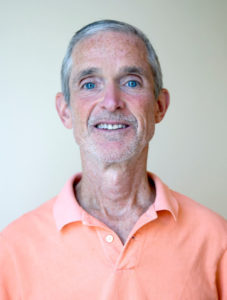
Photo by Anuj Yadav on Unsplash.
Independence implies a freedom from being controlled or unduly influenced by an outside source. Spiritual independence suggests the freedom to live in harmony with the spiritual truth at the heart of our being. It implies freedom from depending on any outside source for our happiness, which becomes more and more possible as we begin to experience the profound and unchanging peace within.
Most of us experience daily ups and downs as the situations and events in our lives unfold. When things go our way, we feel pleased and cheerful; when they don’t, we may be disappointed and frustrated. This tells us that we have unintentionally tied—and thus bound—our happiness to the changing world of thoughts, feelings, relationships, external objects, name and fame, and so on.
It’s not surprising that the predominant beliefs of our culture have influenced the way we understand ourselves and our relationship to the world around us. All our lives, we’ve been fed the message that happiness lies in pursuing and holding onto, as well as avoiding, certain things. The teachings of Yoga help us understand that the more we depend on our reputation, bank account, achievements, or the admiration of others as the source of our peace of mind, the more elusive it becomes.
When we find ourselves feeling anxious or angry, it can be an eye-opening exercise to question ourselves, “What is it that I am wanting but not getting that is preventing me from being at peace with this moment?” Or we could ask, “Who is upset and who is aware of it?” If I am aware that I am upset, I can center myself in that awareness or Beingness that is the real I, and is always peaceful, balanced, and lacking nothing.
Working with the breath can assist us in this type of inquiry. Pause and ask: “Do I have to be upset or can I take some deep breaths and reconnect to the center of balance even as I pursue my efforts?” In such moments, it can be beneficial to challenge ourselves to find at least a foothold of contentment and remember that is our birthright.
If we are in touch with who we truly are, with a felt inner sense of contentment, our relationship to anything that we might acquire or achieve is dramatically different. We can still enjoy things that we accomplish or experience, but our happiness is not contingent on those things. We can still enjoy eating something, winning a game, and pursuing a career or a relationship, but we can also enjoy the process since we are not relying on the outcome.
Yoga teaches us that we all experience this spiritual independence when we are able to quiet our minds and its movements: all the worrying, obsessing, and mindlessness that often occupies them. Beneath the surface waves of the mind lies an ocean of peace, a deep sense of contentment and connection with all of life. Imagine going about your day with that feeling in the forefront of your mind. Over time, that sense of peace will permeate all your experiences.
Stilling the mind this way is no easy task, but even a little success through some form of regular meditative practice will give us a taste of that natural joy that is ever-present at the heart of our being. Better still, a whole lifestyle based on the teachings of Integral Yoga creates a comprehensive approach that addresses all the levels of our being, and provides fertile ground for growth.
This means adopting sacred standards, such as the Yama and Niyama of the Yoga Sutras of Patanjali, as our guidelines for living. It means practicing asana, pranayama and meditation to calm and focus the mind. It means letting go of preferences that don’t really serve us and attuning to the inner wisdom that is always in service to the highest good of everyone, including ourselves. It includes an effort to disentangle our sense of self from the ways we have defined ourselves—witnessing the stories of the mind rather than being imprisoned by them. And, it embraces serving others with selfless love and care, without attachment to the result.
As our practice deepens, we experience moments free from past conditioning and begin to see ourselves and our relationship to the world in a fresh way. We begin to feel our connection to each other and all of nature. Over time, such a dedicated life will gradually restructure even the subconscious mind so that we are no longer compelled by old beliefs and fears, and are free to approach life with a sense of deep belonging, inner contentment, and wonder. This is true independence—the birthright that we are all meant to experience.
About the Author:
 Swami Ramananda is the president of the Integral Yoga Institute of San Francisco and a greatly respected master teacher in the Integral Yoga tradition, who has been practicing Yoga for more than 35 years. He offers practical methods for integrating the timeless teachings and practices of Yoga into daily life. He leads beginner, intermediate, and advanced-level Yoga Teacher Training programs in San Francisco and a variety of programs in many locations in the United States, Europe, and South America. Swami Ramananda trains Yoga teachers to carry Yoga into corporate, hospital, and medical settings and has taught mind/body wellness programs in many places. He is a founding board member of the Yoga Alliance, a national registry that supports and promotes Yoga teachers as professionals.
Swami Ramananda is the president of the Integral Yoga Institute of San Francisco and a greatly respected master teacher in the Integral Yoga tradition, who has been practicing Yoga for more than 35 years. He offers practical methods for integrating the timeless teachings and practices of Yoga into daily life. He leads beginner, intermediate, and advanced-level Yoga Teacher Training programs in San Francisco and a variety of programs in many locations in the United States, Europe, and South America. Swami Ramananda trains Yoga teachers to carry Yoga into corporate, hospital, and medical settings and has taught mind/body wellness programs in many places. He is a founding board member of the Yoga Alliance, a national registry that supports and promotes Yoga teachers as professionals.

